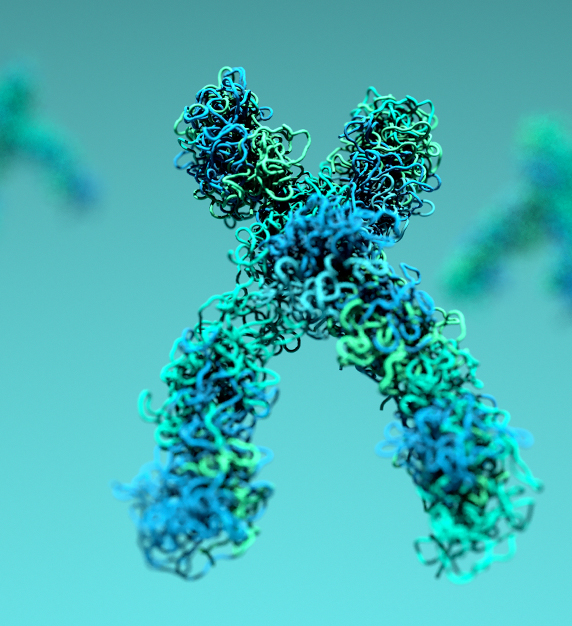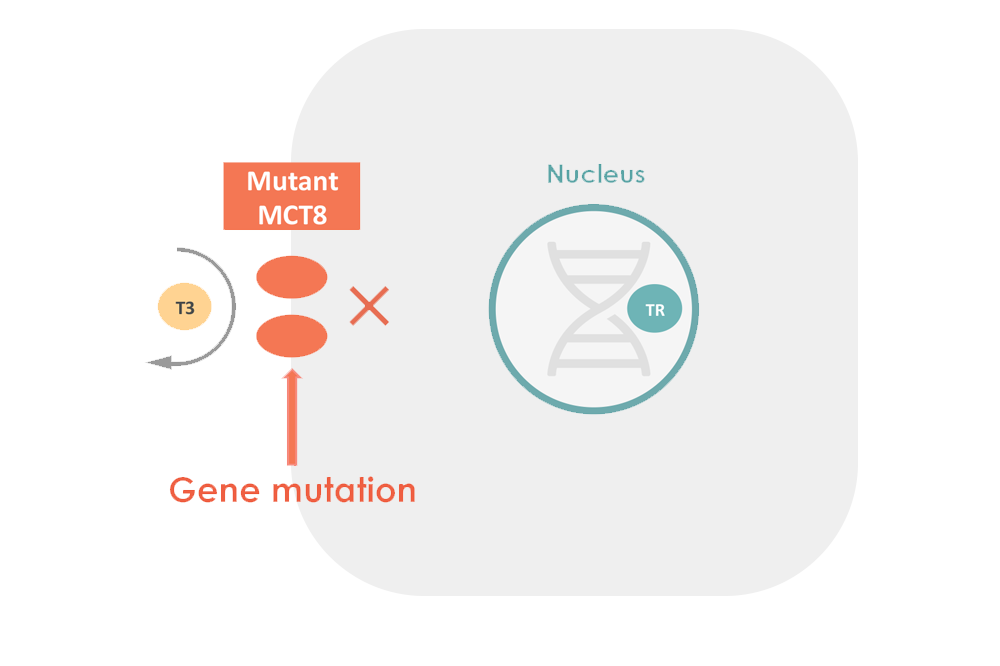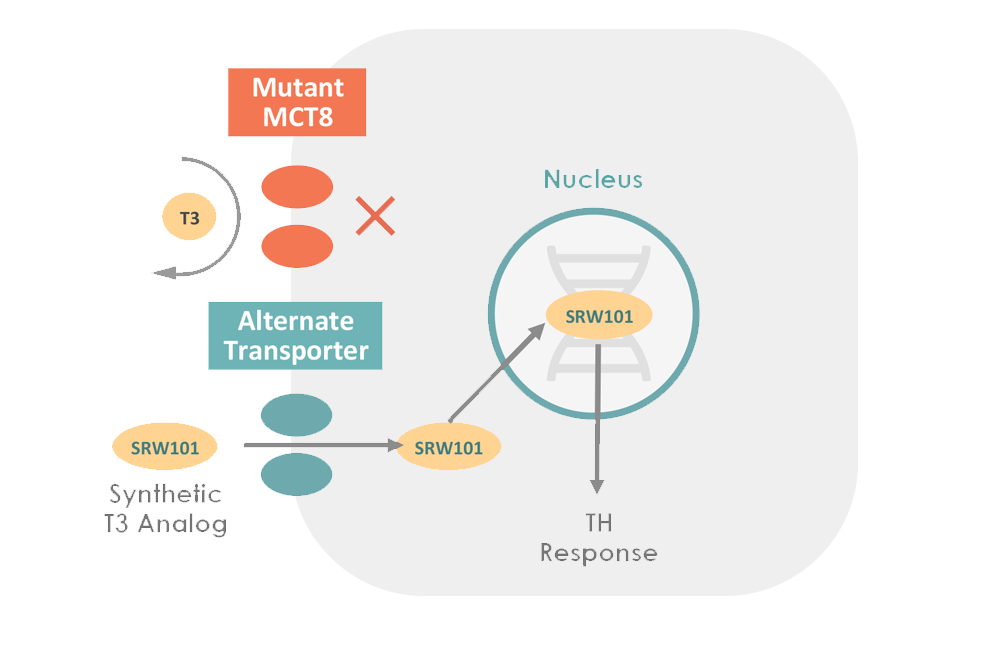
A First-In-Class Treatment for MCT8 Deficiency (ADHS)
AHDS is caused by mutations in the SLC16A2 gene located on the X-chromosome, resulting in a defective or absent thyroid hormone (TH) transporter, MCT8. MCT8 is required to transport the thyroid hormone T3 into cells in the brain and some other vital organs, but not all. An increased level of T3 in circulation results in increased metabolism in those tissues that are not dependent on MCT8 resulting in an inability to gain weight, while a decreased level of T3 in cells in the brain results in neuromuscular symptoms and intellectual disability seen in patients with AHDS.
SRW101, formerly known as DITPA (diiodothyropropionic acid), is a small molecule, synthetic T3 analog in development as an oral formulation with planned dosing of three times per day. Leading physicians in the study and treatment of AHDS, Drs. Refetoff and Weiss, identified SRW 101 as a possible treatment for AHDS. Following numerous pre-clinical studies, four AHDS patients were treated under Compassionate Use with beneficial results that were published in 2012 by Verge et al. (1)
Mechanism of Action
In its therapeutic approach, SRW101 crosses the blood-brain barrier through alternate transporters to partially correct the low levels of T3 (2). As in the case of T3, SRW101 (DITPA) binds to both alpha and beta thyroid hormone nuclear receptors (3) exerting a genomic effect by regulating the expression specific gene (4). DITPA also exerts a cytosolic or non-genomic effect (5). The reduction of circulating T3 as a consequence of DITPA is in part mediated through decreasing the enzyme deiodinases type 1 (6,7) thereby diminishing the generation of T3 from T4 in peripheral body tissues. Thus, importantly, SRW101 lowers the levels of T3 in the serum of MCT8 deficient patients, reducing the increased metabolism (6). As a consequence of the lower metabolism caloric requirements are reduced resulting in maintenance of weight and even causing weight gain.
MCT8 Deficiency

SRW as a
Therapeutic Approach


Orphan Drug and Rare Pediatric Disease Designations
SRW101 has been granted Orphan Drug Designation by the FDA as a drug or biological product to treat a rare disease or condition. Orphan drug designation qualifies PriZm Therapeutics for various development incentives.
SRW101 has also received Rare Pediatric Disease Designation from the FDA qualifying it to receive a Priority Review Voucher (PRV) from the FDA upon approval. The PRV entitles a company to FDA regulatory review of a drug in six months rather than the standard ten months. PRV’s are transferrable and may be sold. Sales prices of PRV’s from 2017-2020 have averaged ~$100 million.
Publications
References Related to SRW101 (DITPA) in MCT8D Deficiency and the Mechanism of Action
- Verge CF, Konrad D, Cohen M, Di Cosmo C, Dumitrescu AM, Marcinkowski T, Hameed S, Hamilton J, Weiss RE, Refetoff S 2012 Diiodothyropropionic Acid (DITPA) in the Treatment of MCT8 Deficiency. J Clin Endocrinol Metab 97:4515-4523.
- Di Cosmo C, Liao XH, Dumitrescu AM, Weiss RE, Refetoff S 2009 A thyroid hormone analogue with reduced dependence on the monocarboxylate transporter 8 (MCT8) for tissue transport. Endocrinology 150:4450-4458.
- Chapo J, Peng Y, Pitts KR 2007 A phosphorimager-based filter binding thyroid hormone receptor competition assay for chemical screening. J Pharmacol Toxicol Methods 56:28-33.
- Pennock GD, Raya TE, Bahl JJ, Goldman S, Morkin E 1992 Cardiac effects of 3,5-diiodothyropropionic acid, a thyroid hormone analog with inotropic selectivity. J Pharmacol Exp Ther 263:163-169.
- Mousa SA, O’Connor L, Davis FB, Davis PJ 2006 Proangiogenesis action of the thyroid hormone analog 3,5-diiodothyropropionic acid (DITPA) is initiated at the cell surface and is integrin mediated. Endocrinology 147:1602-1607.
- Di Cosmo C, Liao XH, Ye H, Ferrara AM, Weiss RE, Refetoff S, Dumitrescu AM 2013 Mct8-deficient mice have increased energy expenditure and reduced fat mass that is abrogated by normalization of serum T3 levels. Endocrinology 154:4885-4895 .
- Ferrara AM, Liao XH, Ye H, Weiss RE, Dumitrescu AM, Refetoff S 2015 The Thyroid Hormone Analog DITPA Ameliorates Metabolic Parameters of Male Mice With Mct8 Deficiency. Endocrinology 156:3889-3894.

